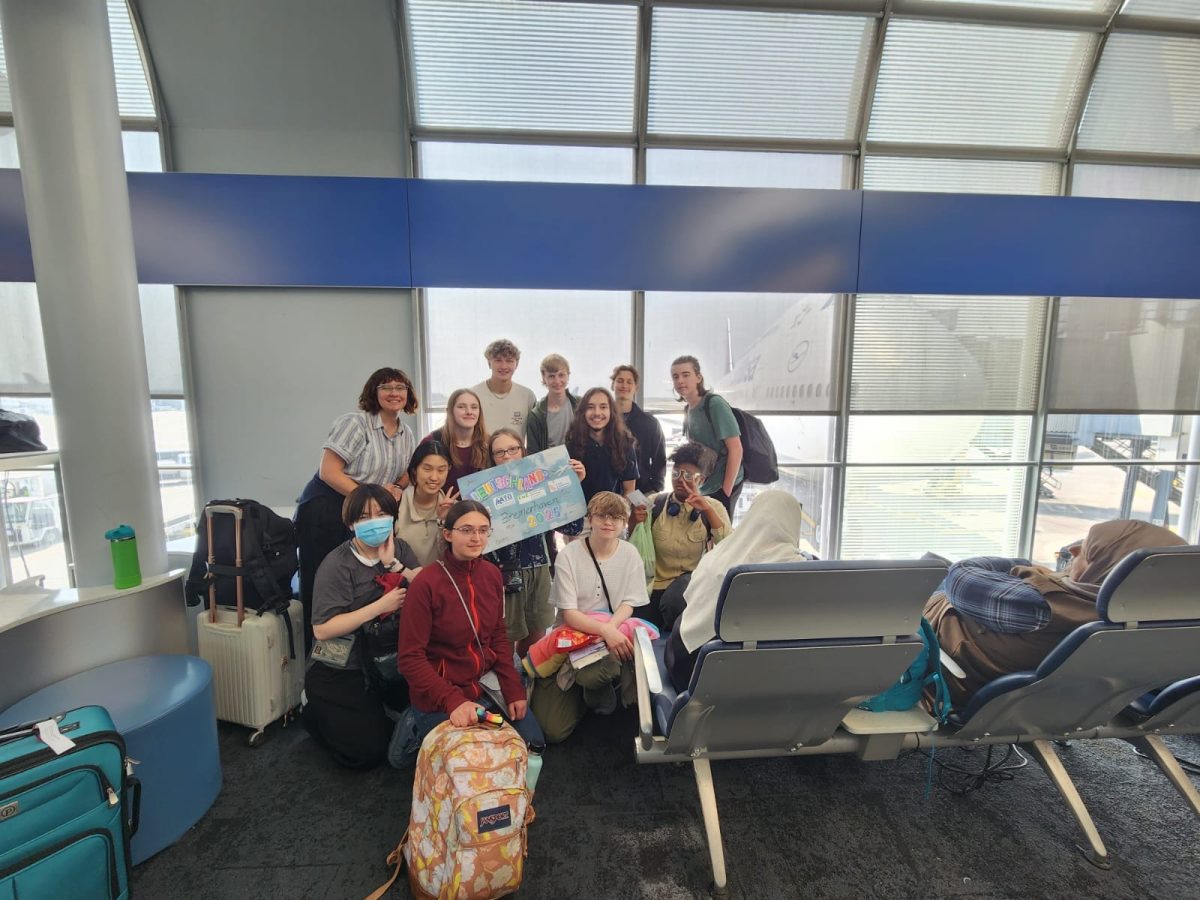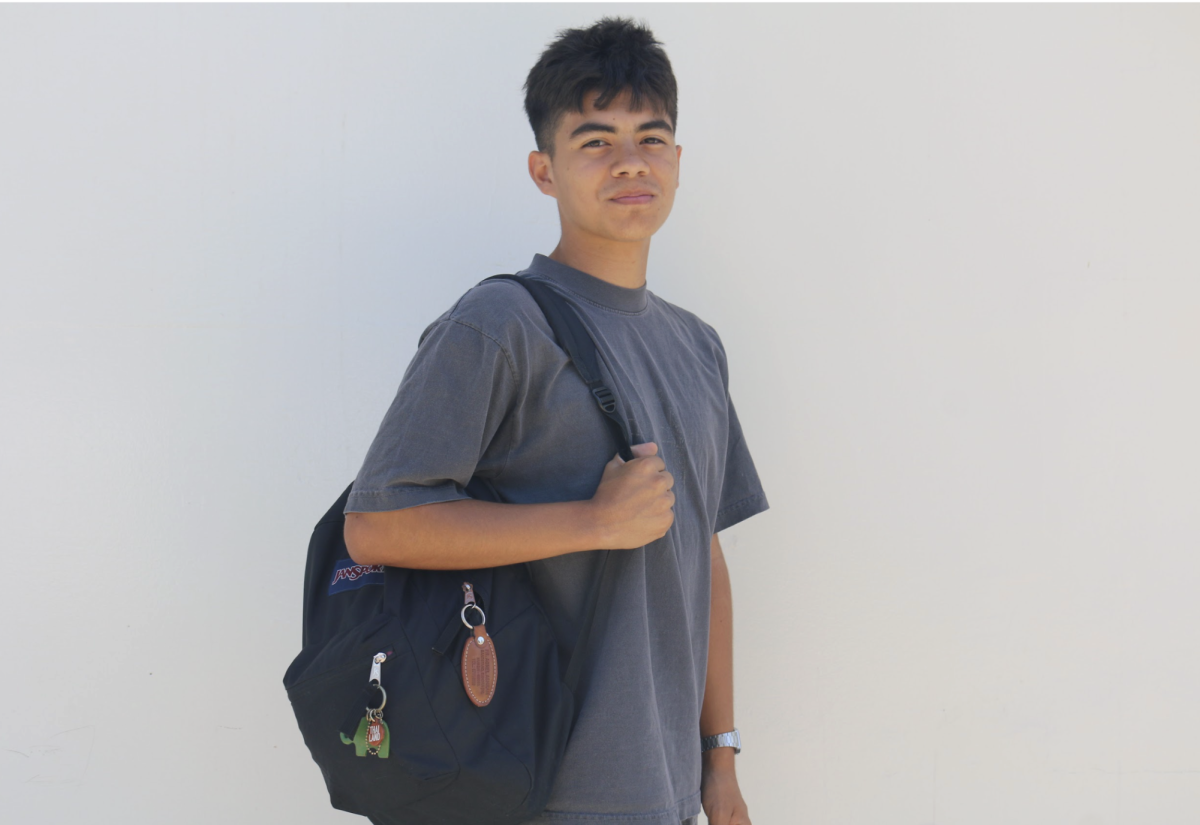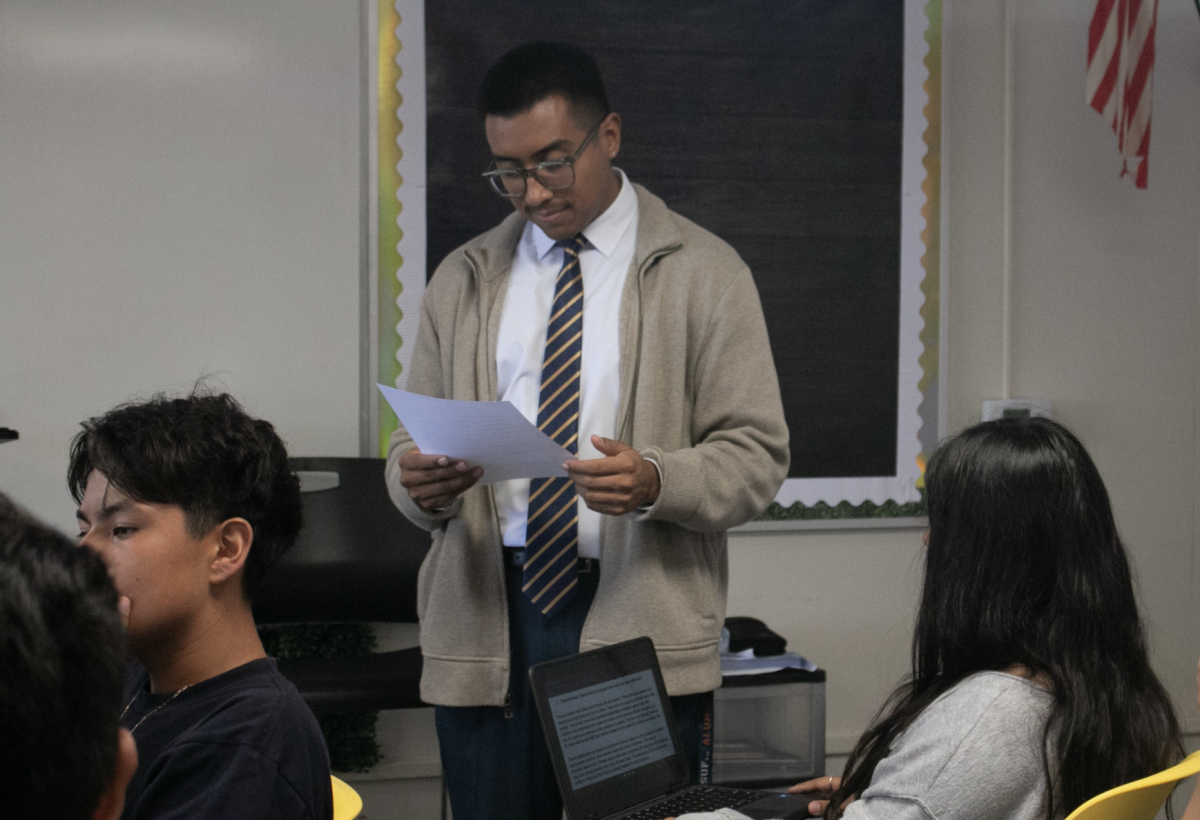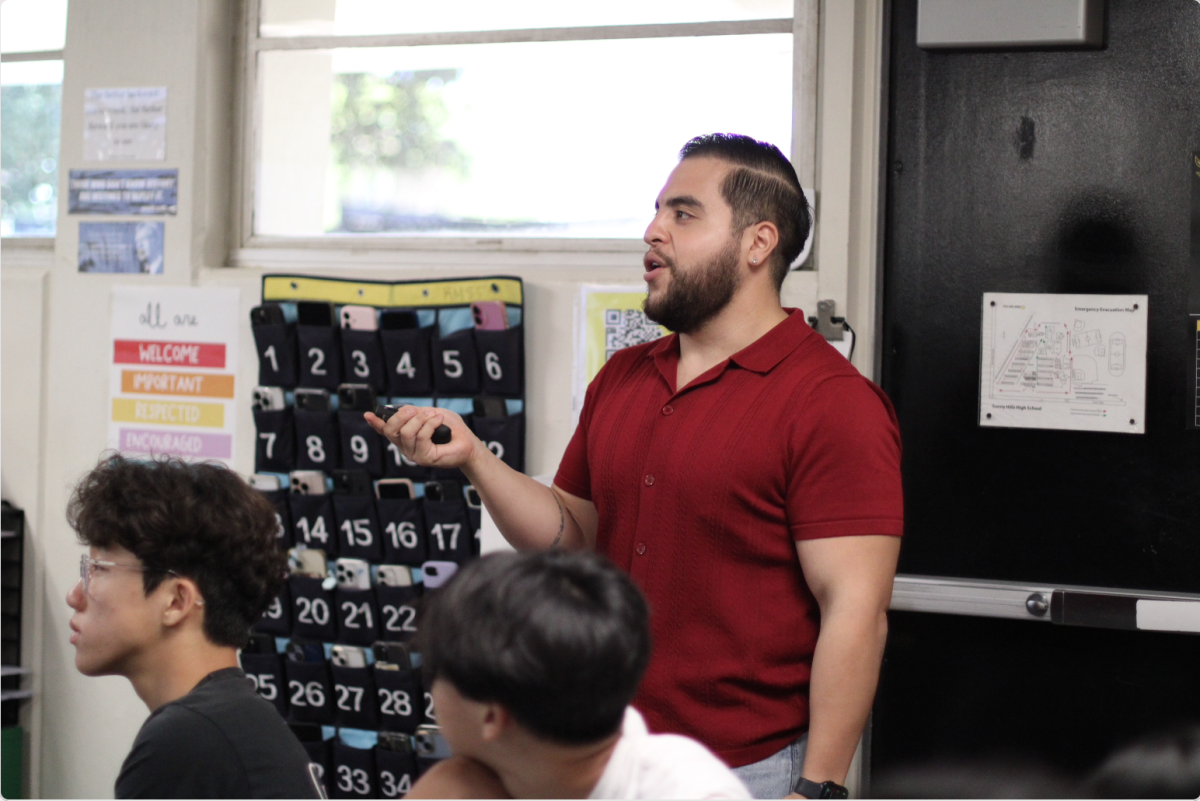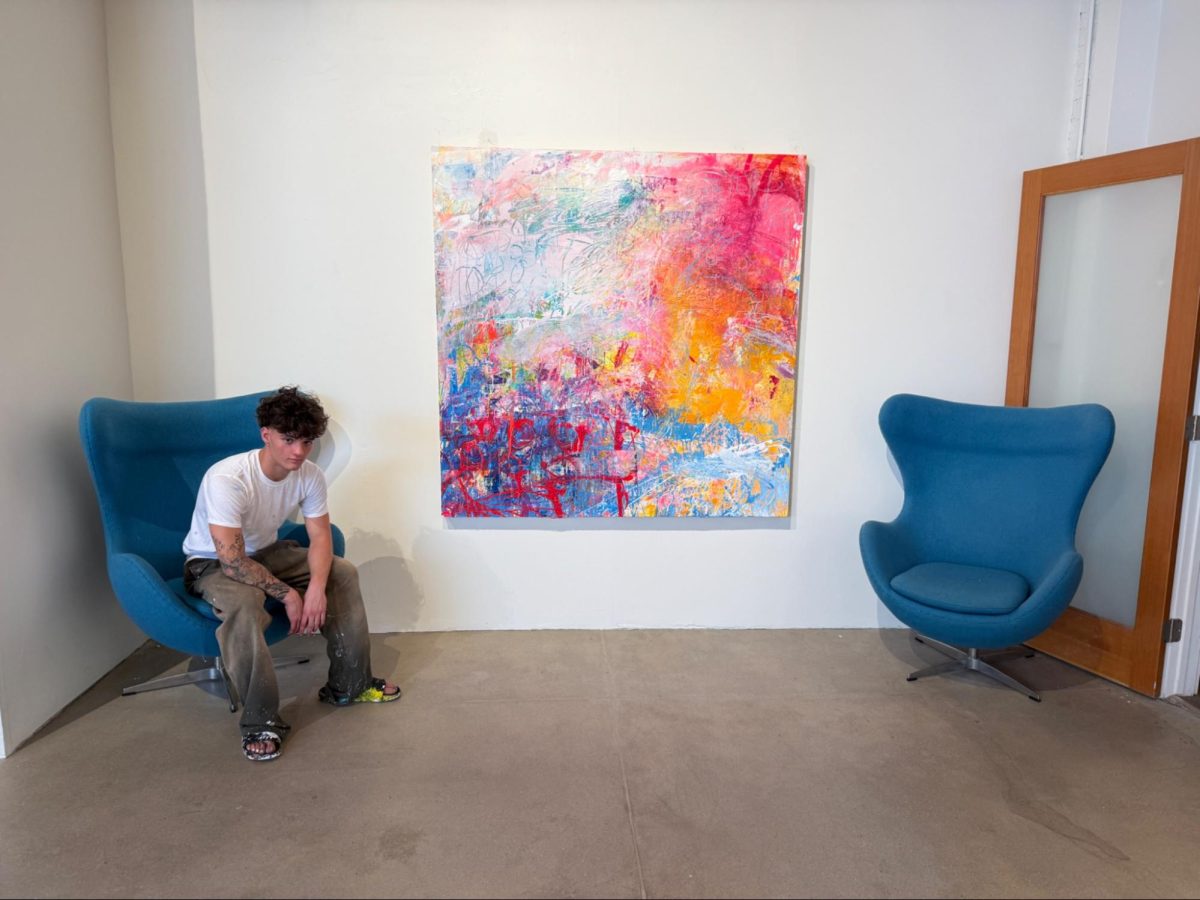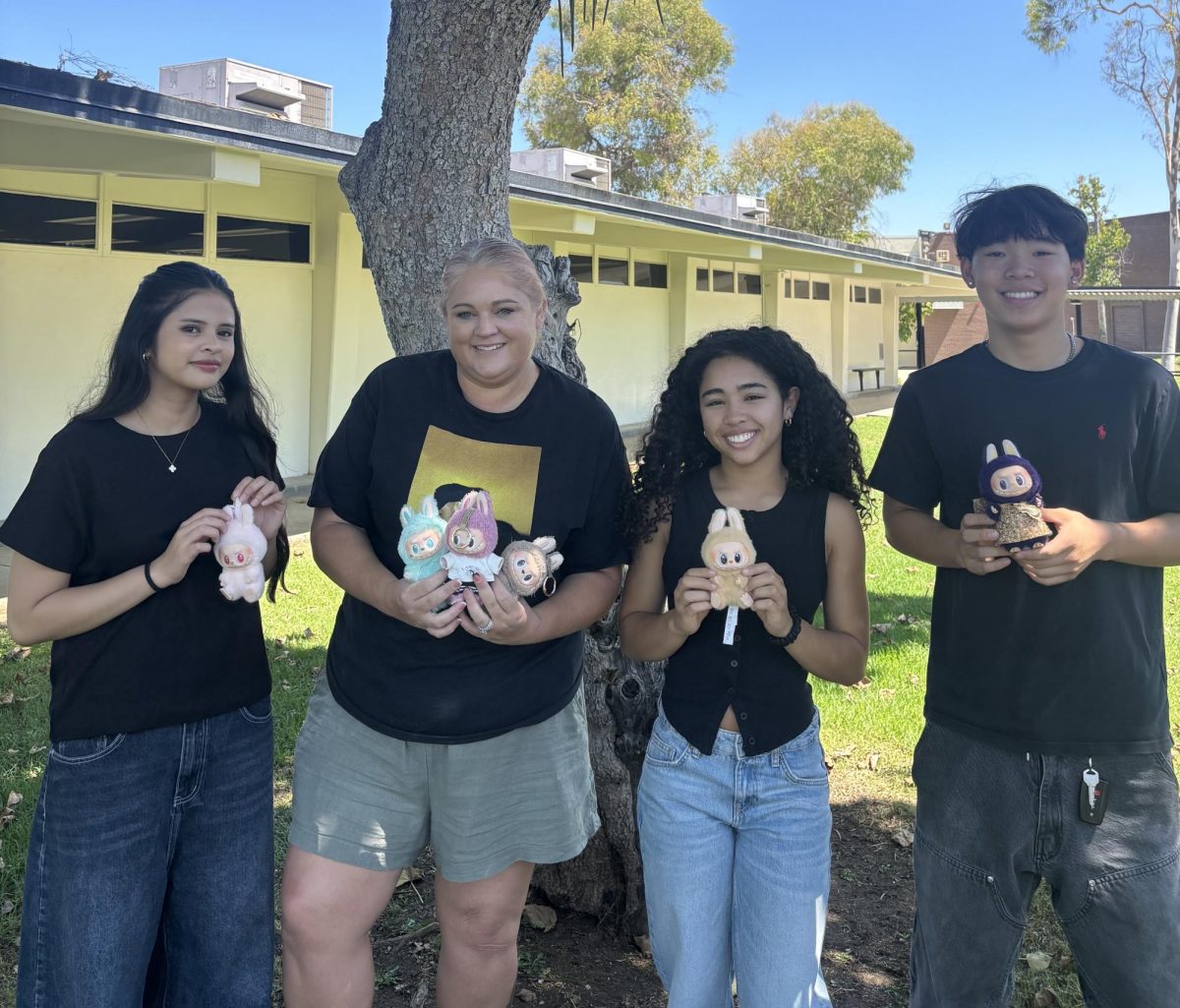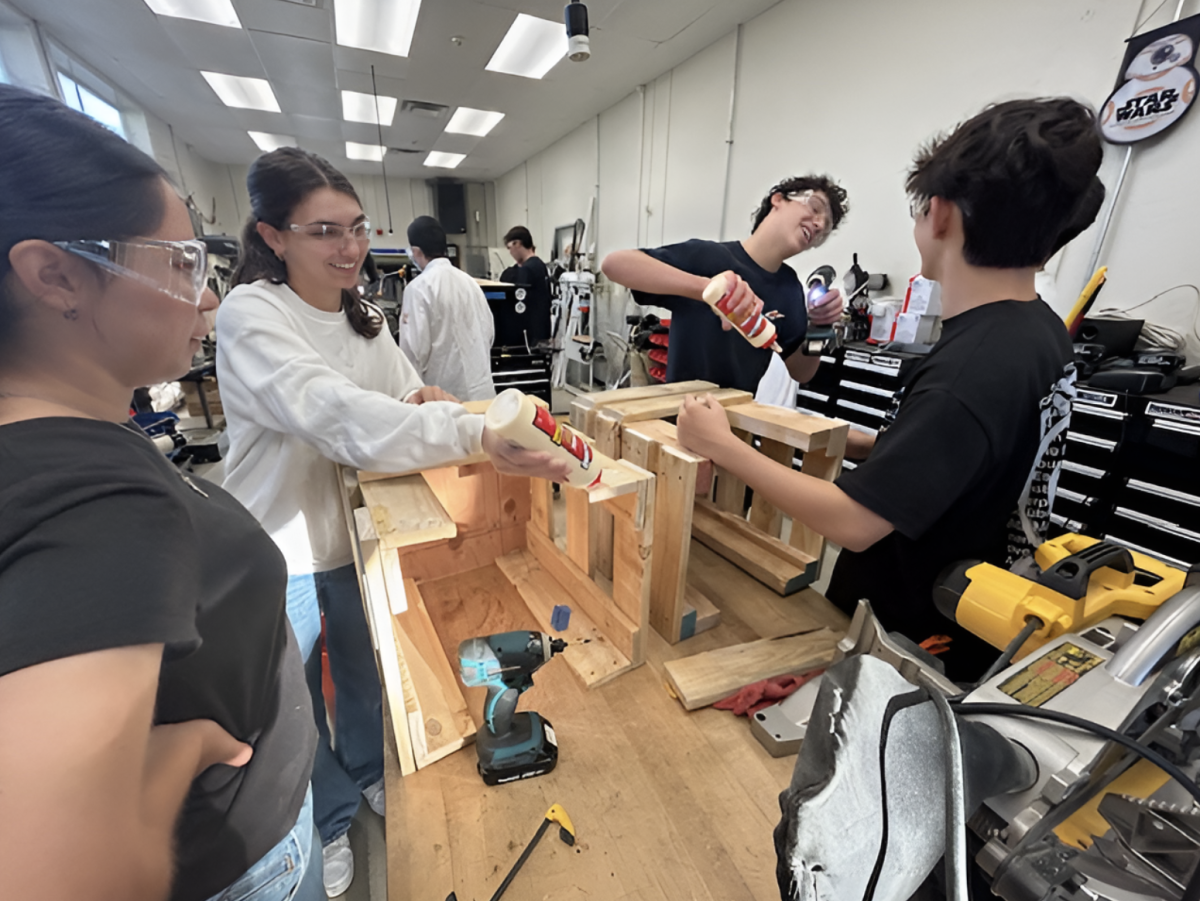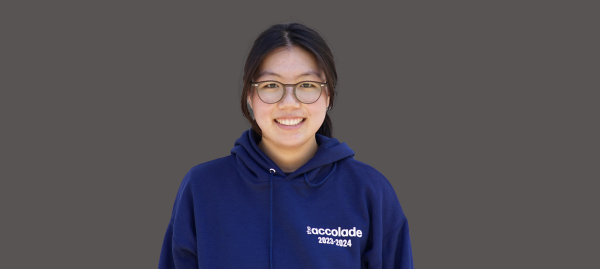World history student teacher Christian James Quion, who also goes by C.J., has a well-nurtured comical sense. From witticism on Gen Z slang to chucklesome play-on-words about singing swords, Quion’s humor adds to his vibrant presence in the classroom.
To Quion, a former stand-up comedian during his high school years, humor is a special part of his character. As a hard-of-hearing individual, the student teacher said he was able to rely on it throughout his journey to find his identity.
“The point of the humor was that it was a way for me to feel like I was noticed because, as someone who is hard of hearing, I certainly did feel like I was invisible at times,” he said. “This was something I needed to be comfortable with because I couldn’t be noticed all the time. But when I could prevent it, humor was my way of doing that.”
As Quion teaches world history periods 2, 4 and 5 in Room 55, he not only brings laughter into the classroom, but also his enthusiasm for history and experiences as a hard-of-hearing individual.
NOT-SO-ORDINARY CONDITION
The history teacher said being hard of hearing has largely impacted who he is today and the paths he has taken. Quion was born with severe-profound bisensorineural hearing loss, which means that he hovers around 90% hearing loss in both ears.
From a young age, Quion said he began taking auditory verbal therapy through an Individualized Education Program given by his school district. This helped him learn how to communicate verbally rather than using sign language, and at 6 months old, the student teacher received his first hearing aid.
Despite the student teacher’s optimistic nature, he said some hardships were unavoidable, such as extraneous or loud sounds that made it difficult to hear others. Other challenges involved the social pressures he experienced, Quion said.
“Some people were just judgmental and made harmful assumptions about my hearing loss,” he said. “I didn’t know many Filipino kids, and I especially did not know any hard-of-hearing kids — I was hard of hearing, I was Filipino. So I was kind of like a unicorn in a way.”
However, his disability in no way silenced his imagination and love for stories. An avid fan of the Percy Jackson & the Olympians series and historic tales, the student teacher said storytelling became a way of expression for him, which translated into his passion for the past.
“I started reading history around fourth, maybe fifth, sixth grade — I was just consuming all of it,” Quion said. “I found that it blew me away even more, knowing that the stories were real. So by sixth grade, I was already telling my relatives about what happened during World War II.”
His interest in history continued into his days at Brea Olinda High School from 2016-2020. The student teacher said the instructors he met sparked his interest in teaching and bolstered his passion for history.
“I had social studies teachers who were very passionate about their subject, and they passed the passion on to me, and I’m now passing it on to my students,” he said.
Among his many impactful teachers, Quion recalls his Advanced Placement [AP] European history teacher Gil Rotblum, who would print video transcript and passed around a microphone accommodation to students who were reading to make sure Quion caught everything spoken.
“The fact that I didn’t have to ask him to do that meant a lot to me,” he said. “His impact on me was that he basically welcomed me and my disability into the classroom.”
Quion’s journalism adviser, Alexander Koers, was another figure that inspired his educating journey because Koers too had hearing loss.
“To find somebody with my condition in this profession was definitely one of the things out there that inspired me to become a teacher — it wasn’t the only one, but it was one of them,” he said.
ADVOCATING FOR HIMSELF
His hearing disability didn’t stop Quion from exploring different pathways in high school. From playing the trumpet in the school band to joining a history club, Rho Kappa, Quion said he constantly persevered in all his endeavors.
In a column he wrote for Brea Olinda’s student newsmagazine, Quion shared his experiences growing up hard of hearing with his peers.
“I am part of a massive culture consisting of 360 million hearing impaired people from different backgrounds across the globe,” Quion wrote in his article. “Although it may not always be easy, I’m proud to be part of a culture in a world where hearing is heavily relied on.”
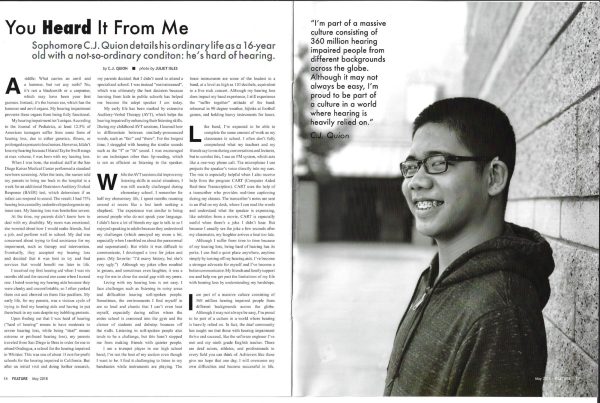
Nevertheless, Quion said he’s learned to adapt.
“In high school, it was mainly just asking people to repeat themselves, which was fine with me,” the student teacher said. “I didn’t mind that because it’s part of advocating for myself and part of being out there being who I am.”
BECOMING A TEACHER
After graduating amid the height of the COVID-19 pandemic, Quion started attending California State University, Fullerton, in 2020, as a history major. Because he had passed a handful of AP tests as a high school student, he was able to graduate with a bachelor’s degree within three years. As part of his postbaccalaureate, he is currently enrolled in the teaching credential program.
The world history instructor said he finds his purpose in being able to foster an awareness for inclusion in his students’ culture’s history and background.
“I would teach Korean kids about Korean history, to Filipino kids on their history because I wanted them to find a place to belong,” Quion said.
Freshman Ryan Kim, who’s in Quion’s fifth period class, said he appreciates how the student teacher is able to make history personal to students.
“Mr. Quion engages us by talking about each student’s ethnicity, especially when we are talking about a specific type of ethnicity,” Kim said. “We all know that Mr. Quion has a problem hearing other people, and he has never been uncomfortable telling us about his hearing loss problems.”
Since his elementary school years to now in Room 55, the student teacher said he relies on a frequency modulated system, which acts like a one-way phone call, to assist with his hearing. Throughout the school day, Gordon wears the microphone that projects his voice directly to Quion’s ears.
With his students, Quion said informing his class about his disability and his students’ understanding has been able to ease his transition into the classroom.
“I was talking to my students about what it meant to be hard of hearing, and I communicated with them, ‘Hey, there are certain sounds I have trouble hearing,’” he said. “So ever since I had that dialogue with them, they’ve been a bit more considerate in regards to my hearing.”
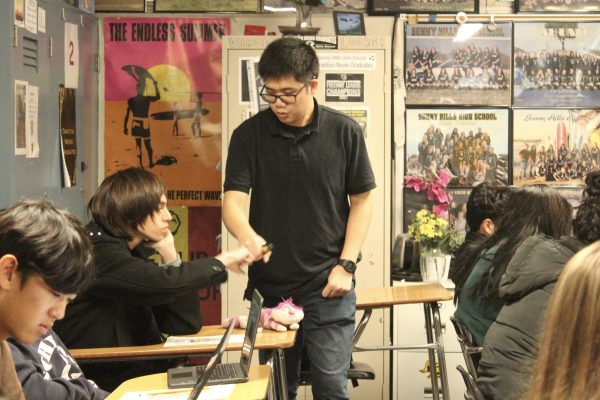
The student instructor said he tries to approach his students as a human being, such as by sharing drawings he drew as a high school student that supplement any history lessons of the day or regularly dropping puns to draw a chuckle.
“Just to humanize myself because I noticed a lot of my students have been seeing themselves in me a lot more the more I open up about who I am,” he said.
Gordon said sharing a classroom with Quion is a pleasure.
“CJ is a natural teacher,” the world history teacher said. “His historical knowledge of each topic is a really high level, and he’s able to share that with the students — it’s been very much appreciated.”
In fact, fate may have pulled the two history instructors together in that they attended the same elementary and high school. Virtually neighbors in Brea, Gordon and Quion said they enjoy playing tennis with each other on their local court.
“It’s probably destiny that we found each other,” Gordon said.
Once Quion finishes his training with Gordon, he said he has two future paths he’s considering: going straight into teaching if he gets hired with his experiences from Sunny Hills or enrolling in a graduate history program to receive a Ph.D.
Meanwhile, Quion, as a multifaceted educator, is fulfilling his childhood passion. He strives to introduce the breadth of stories in the world’s history — one lesson at a time.
“I want my students to feel the same passion for history that I do,” he said. “Maybe some of them might not have the passion, but I want them to have the opportunity to.”





